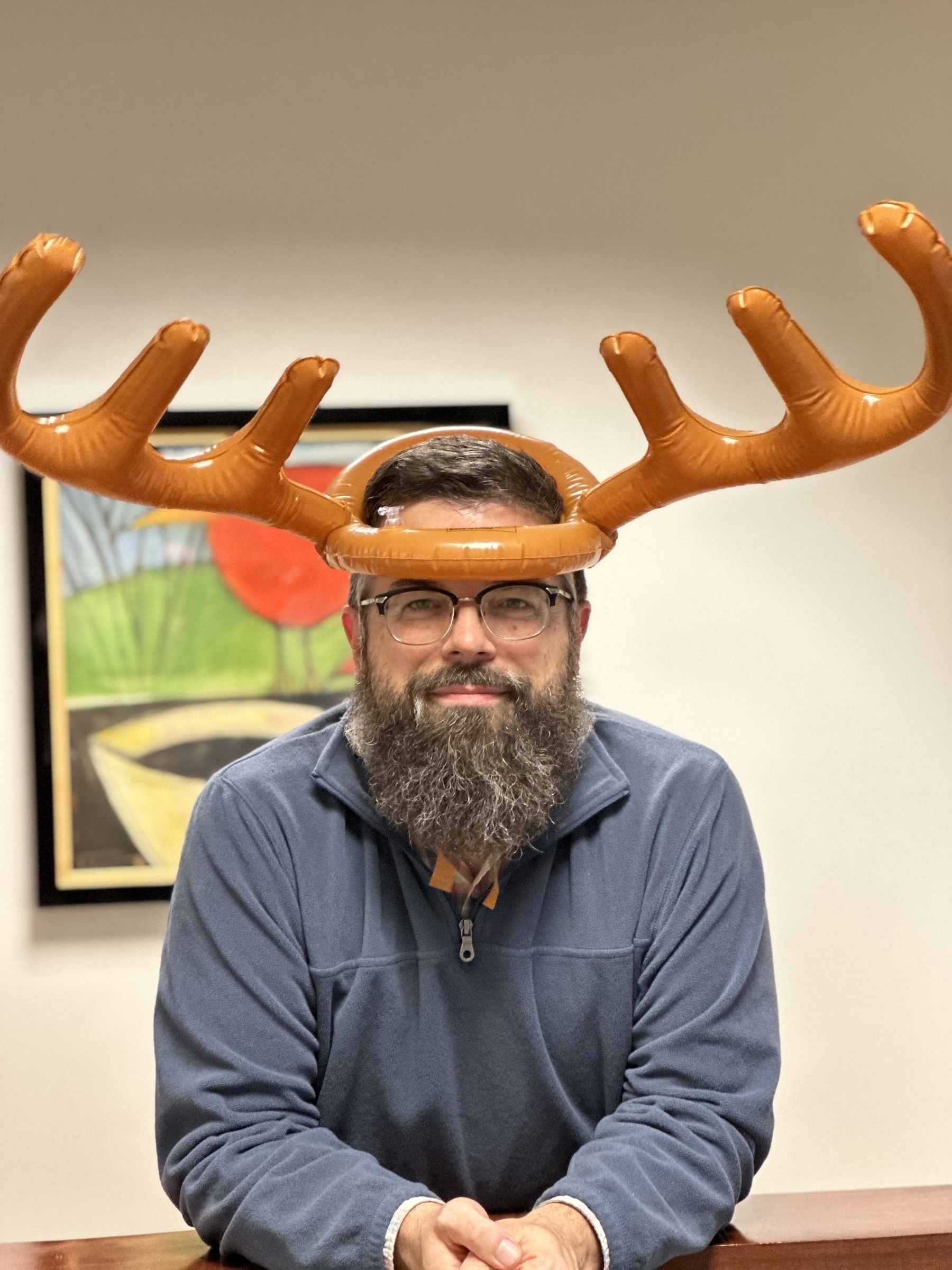It probably says something about me that this is one of my favorite Aesop Rock songs.
In a recent continuing education course on AI, the speaker said, “No one will lose their jobs to AI, but some may lose their jobs because they don’t use AI.” On that first half, bullshit.
The second half, however, may contain some truth. I’ve reluctantly begun using the university’s enterprise version of Microsoft Copilot—mostly to answer questions about Excel so far. It’s useful. Basically a much more efficient search engine.
I don’t actually think I’d lose my job if I didn’t use AI—but over the course of the next few years my work could suffer comparatively without it. But here is where I need to be cautious: while I may find a tool to make my work more efficient, I must remember that the goal of my work is not efficiency. Ivan Illich:
Tools foster conviviality to the extent to which they can be easily used, by anybody, as often or as seldom as desired, for the accomplishment of a purpose chosen by the user.
Tools are not neutral. They are products of intelligence and have an intelligence of their own. Used mindlessly, they will shape the worker according to the tool’s nature.
What does this mean for my use of AI at work?
- I will remain in control of my work’s purposes.
- I will not use artificial intelligence as a substitute for my own.
- I will not allow the values of the designers of AI—which perforce exist within AI itself—to override my own values.
Just received a shipment of coffee that a neighbor recommended to me.

An appropriate reading when you’re coming down with some kind of sickness:
It isn’t hard to inhabit Tao’s Way.
Just stop picking and choosing,
stop hating this and loving that,
and you’re there bright and clear.
A hair-width distinction is error
enough to split heaven-and-earth:
to face Tao’s shimmering Way
simply give up like and dislike,
for battling things you dislike
is mind’s great disease.
The Way of Ch’an, “Fact-Mind Inscription”, translated David Hinton.
Some of us have been saying to upset Christians for years that “Happy Holidays” does not exclude Christmas. Then the HR dept at work puts up signs that say “Happy Hanukkah” and “Happy Kwanzaa” but not “Merry Christmas.” Folks, you’re not helping. Also, should I complain that there’s no Yule sign? ;)
Amazing story (via @ayjay) on newly discovered ways that redwoods survive fire. We went on Tom’s Muir Woods walking tour in 2022. He told us that redwoods are practically immortal, if only humans would stop screwing things up.
Thank God for “thought leaders” who help us “pre-solve” problems.
For much of my life, I read books and other things in a frankly desperate, craving way, hoping to find The Answer to the problem that was given to me when I was born. It took several decades and college degrees, and the cultivation of a hyper-developed intellect stocked with more texts than the Library of Congress and the Library of Alexandria combined, for me to arrive, not through reading but through realization, at the recognition that the answer isn’t in a book at all but in the one who reads books in search of the answer.
Something like this realization—less fully realized, no doubt—has been nagging me for some time. Early January will be the 20th anniversary of our departure from Christian fundamentalism and for the entirety of that time I have been hoping to find The Answer in books.
The fundamentalism my wife and I left was intellectually incurious. I started to say it was anti-intellectual but that’s not quite right. Intelligence was valued as a gift of God. That gift, however, could only be put to narrow uses. College education was tolerated for men for the purpose of establishing a career. Reading was encouraged, as long as you limited yourself to the list of acceptable writers. Preaching was typically more emotional than intellectual, but intelligent teachers were valued for the purposes of Sunday School.
More than anything else, it was when Rachel and I realized that these bounds of acceptability not only ruled out people who were clearly devoted and sincere Christians but also were limiting us in harmful ways that it became clear that we needed to get out. We’ve often described our exit as the world opening up for us—an almost physical sensation of walking out of a dimly lit room into brilliant sunshine and blue skies.
So you can imagine how 27 year old me—curious and intelligent, finding the world open—devoured book after book after book. Even academic work that I barely understood but had the virtue of exercising my mind with ideas that were just out of my reach. After a few years of that, I had a broader and richer understanding of theology than some of the seminary-educated ministers I knew.
In the years that followed, I chased ideas—whether they appeared in books or online. With every new idea came the hope that this would be the one. Then the midlife transition arrived (I do not say “crisis,” though there were many critical moments) and I began to wonder if this was all just a monumental exercise in compensation and fear and trauma. This is the idea that has nagged me for much of my forties, particularly since that time in mid-2020 when I shut down all my social media accounts, quit the news, and started reading about hermits.
Wise teachers keep telling me that in order to become wise I must become a fool—yet I keep building teetering piles of books around me. Little by little, though, I manage to laugh at my piles and glimpse the lie hiding within them. Eventually, perhaps, I won’t need them any longer.
The holiday party at work did not go my way…

Indiana Jones and the Dial of Destiny is Polar Express but with Nazis